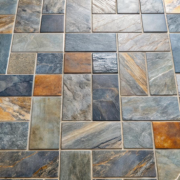Many Americans find a solar Power Purchase Agreement (PPA) an attractive financing option when considering starting a solar project. PPAs offer the possibility of installing a PV system on your roof without incurring any upfront fees.
However, before you sign a solar PPA agreement, it’s important that you understand exactly what you’re getting into and how it will affect your finances.
In this article, we’ll take a look at how PPAs work, how they compare to other types of financing, and how they can benefit your home or business.
Here’s what you need to know about financing solar installation in Florida and other states in the US with a PPA plan:
What is a solar PPA?
A solar PPA is an agreement between two parties — usually, an energy company or a third-party developer and the homeowner — in which the developer owns and maintains a PV system on the homeowner’s property, pays for all equipment costs, and sells the electricity generated by this system back to the homeowner at a fixed rate throughout the duration of their contract.
How does a PPA work?
A Power Purchase Agreement (PPA) is a contract between an electricity generator and a buyer of the electricity. It can be used to describe the sale of electricity from any source but is most commonly used in reference to photovoltaic (PV) installations.
In a PPA, the owner of the PV system or energy company, such as PPM Solar, an installer of commercial solar power systems in Florida, agrees to sell all or part of their generated electricity to a third-party buyer at a pre-set rate for a period of time set forth in the solar power contract — in exchange for agreeing to let the developer install solar panels on their property.
 The third-party buyer or host customer does not own the solar power system installed on their roof but buys all or part of its output at a fixed rate for up to 20 years.
The third-party buyer or host customer does not own the solar power system installed on their roof but buys all or part of its output at a fixed rate for up to 20 years.
Is it free?
The short answer is no.
With a PPA, your monthly payments can be based on the amount of energy you use or the price per kilowatt that’s charged by your utility company.
How is a PPA different from a solar lease?
A Power Purchase Agreement (PPA) and solar lease are two solar financing options that are different
The only similarity is that for both options, a solar contractor installs a solar panel system on your roof, but you do not own the panel.
The payment for a lease is fixed no matter how much energy the panels generate. With PPA solar power, you will receive an electricity bill from your utility company for the amount of power that your home consumes from the grid. The amount paid to your utility company will be lower than what they would charge if they were supplying all of your residential or business energy needs.
So, if you sign up for a PPA solar program, you pay for what you use, which can vary from month to month depending on how much sun shines on your roof. To put it differently, your monthly payment in the PPA solar contract is determined by how much electricity you use.
What are the benefits of PPA?
PPAs have many advantages over other forms of financing:
- No upfront cost: There’s no need to come up with thousands of dollars for equipment and installation. The PPA provider covers all the costs of installing the panels on your roof and paying for maintenance, repairs, insurance, and upgrades over the length of the agreement.
- Flexible financing options: You can choose how long you want your solar panels PPA to last — anywhere from 10 years to 25 years — depending on how long you want to lock in your low electricity rate, how long you plan on living in your home and whether or not you plan on selling the house.
- Lower utility bills: PPA financing typically involves lower monthly payments than other financing methods. Also, the more electricity your panels produce, the lower your bill will be because you’re selling the excess energy to the utility company rather than buying it from them.
Are there any disadvantages?
Yes, there are a few disadvantages of a PPA solar power purchase. These include:
- Long contract: A PPA is a long-term contract, usually between 20 to 25 years. This means that you have to commit yourself to paying for the electricity for a very long time, which may be difficult if you change your mind or move.
- Less control: Since you’re not buying the actual power plant, you have less control over how it’s run. If there are solar PPA problems or if the plant needs maintenance, it’s up to your power provider to take care of them. You can’t shut down the plant if there’s a problem or take advantage of lower prices elsewhere in the market.
- No tax credits: Unlike other financing options such as loans or outright purchase, a PPA does not https://www.theecoexperts.com/solar-ppa/ like net metering credits or rebates for purchasing equipment.
- Limited availability: Utilities may not offer PPAs in all areas, which can restrict your selection of providers and make it difficult to switch from one supplier to another if you’re unhappy with your current provider.
Ready to enjoy the benefits of green energy?
If you’re considering a PPA, look into the details of the deal before you sign. The best deals will be available from companies with solid financials and access to low-cost financing.
You should also think about your own finances, how long you are planning on staying in a home, and how much debt you really want to take on when moving forward with another PV system purchase.
Do your due diligence and make a decision that is right for you. Fortunately, the increasing popularity of PPAs makes this a reality.













Comments